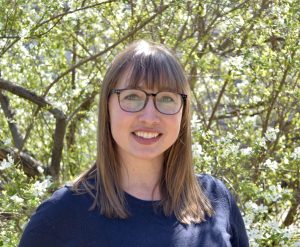
Ph.D.
Assistant Professor
Biochemistry - School of Medicine
Research at a glance
Area(s) of Expertise
Research Summary
We study protein translocation across membranes in bacterial pathogens using an interdisciplinary approach that includes cryoEM and enzyme kinetics.
Cells must interface with and adapt to the outside world, and one critical way they achieve this is through the dynamic and specific action of secretion systems that transport molecules in and out of cells. Over the last several decades, scientists have identified numerous cellular secretion systems from bacteria to human. However, there are still many unanswered questions about precisely how and when they function. The goal of my research program is to integrate biochemical, biophysical, and genetic approaches to understand the structure, regulation, and function of bacterial secretion systems in their physiological contexts.
Bacterial pathogens represent a significant threat to global health, exacerbated by growing drug resistance. Although pathogens use diverse strategies to infect hosts, one common obstacle that all pathogenic bacteria must overcome is moving virulence factors across multiple membrane barriers: their own and the host cell’s. For example, many bacterial pathogens secrete diverse molecules into hosts or the extracellular space to promote growth and survival through the type IV secretion system (T4SS).
The components used by bacteria to move virulence factors across membrane have been thoroughly catalogued, but our mechanistic understanding of how these components physically work lags behind. One major focus of my research program will be to advance our fundamental mechanistic understanding of how secretion systems couple chemical energy to mechanical work, allowing us to identify and target the “Achilles heel” of these molecular machines with an ultimate goal of blocking pathogenesis. Furthermore, the delivery of diverse molecules can be differentially regulated by the environment or according to bacterial lifecycle stage, implicating secretion as a key way for bacteria to broadly and quickly tune their interactions with the outside world. Thus, a second major question my research program will address is: how do bacteria regulate secretion to adapt to changing needs over their lifecycle?
My research group will investigate complex cellular machinery by integrating biochemical, biophysical (including state of the art cryo-electron microscopy), and genetic approaches to shed new light on our understanding of the fundamental process of translocation across membrane, a necessary process for all cells, as well as how we think about bacterial pathogenesis.
Educational background
- Ph.D., Chemistry, University of Alabama at Birmingham
- B.S., Chemistry, University of Alabama at Birmingham
- B.B.A, Marketing, College of William and Mary